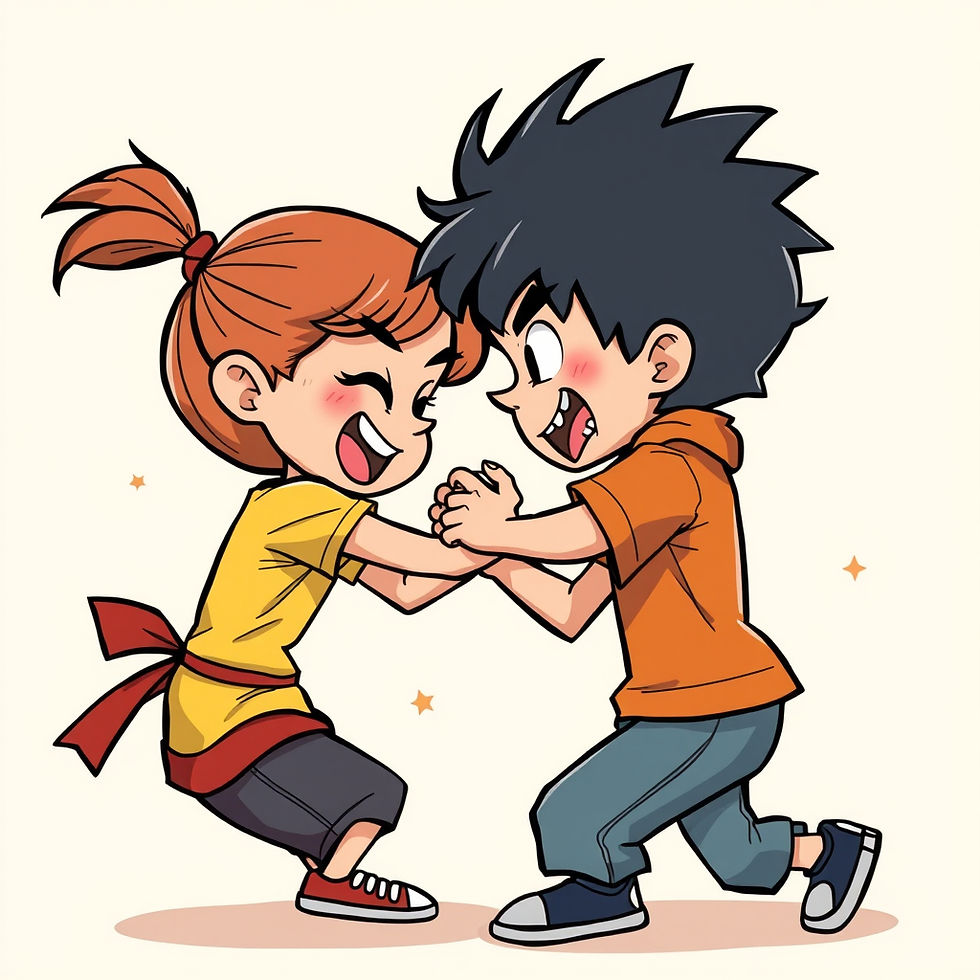When Productivity Is a Trauma Response: Healing from the Hustle in a Capitalist World That Demands Too Much
- catherinekates2
- Apr 2, 2025
- 4 min read
Updated: Jun 9, 2025
For most of my life, I believed rest had to be earned.
I was the one who always had it together. My days were packed with clients, projects, trainings, and caregiving. I collected degrees like they were life jackets. I pushed through exhaustion, illness, and emotional pain because stopping felt scarier than going.
People praised me for it:
“You’re so productive.”
“You do so much.”
“You’re amazing.”
And I believed them—until I couldn’t anymore.
When I was diagnosed with cancer, my body gave me no choice. I couldn’t keep up the pace. I couldn’t override the deep fatigue. I had to stop. And for the first time, I began to ask:
**What happens when the only way I know how to feel worthy… stops working?**
That question was the beginning of my healing—and it’s now a journey I walk with so many of my clients.
Productivity Is Not Just a Habit—It’s a Survival Strategy
I work with clients from many walks of life—racialized, neurodivergent, chronically ill, queer, overfunctioning, perfectionistic. And while their lives look different, a theme repeats:
They’re exhausted. Burnt out. Afraid of stopping.
Underneath it all? A story that sounds like:
“If I’m not productive, I’m not valuable.”
This isn’t laziness or lack of motivation—it’s survival.
Many of us learned from a young age that:
* Being useful meant we were less likely to be hurt or abandoned
* Achieving was how we earned attention, safety, or belonging
* Staying busy helped us avoid the emotional chaos around us
When trauma shaped our early lives, we learned that **doing** was safer than **being**.
The Overachiever Identity: High-Functioning Trauma in Disguise
This is especially true for people who identify as overachievers. You know the type—always doing more, helping others, chasing the next goal, getting all the degrees and certifications, constantly achieving.
What looks like success on the outside is often **high-functioning trauma** on the inside.
Overachieving becomes a way to:
* Avoid the pain of feeling not enough
* Control chaos when the world feels unstable
* Feel “invisible” safety in a system that otherwise devalues us
I know this pattern well—because I lived it.
Capitalism and the Colonization of Our Worth
Here’s where we zoom out.
The pressure to constantly do, produce, and achieve doesn’t just come from families or trauma histories—it comes from the **system we live in**.
In capitalism:
* **Worth is measured by output.** If you're not producing, you’re seen as lazy or useless.
* **Rest is a reward, not a right.** You “earn” it through exhaustion.
* **Success is individual.** Hustling is moralized. Slowness is pathologized.
* **Bodies are machines.** There is no room for disability, neurodivergence, illness, or grief.
Capitalism feeds on our disconnection—from our bodies, from each other, and from our natural rhythms. It rewards hyper-productivity and punishes presence. And it especially harms those who have always had to work twice as hard just to be seen.
Capitalism Collides with Other Systems of Oppression
Capitalism doesn’t act alone—it works hand in hand with:
* **White supremacy**, which expects racialized people to constantly prove worth through suffering, perfection, and “resilience”
* **Ableism**, which devalues bodies and minds that can’t (or won’t) conform to productivity standards
* **Patriarchy**, which relies on unpaid, invisible labor—especially from women, femmes, and caregivers
* **Neuro-unaffirming environments**, where masking, overcompensating, and self-erasure are rewarded over authenticity
Together, these systems teach us that survival depends on performing worthiness.
And over time, our nervous systems believe them.
Unmasking, Unlearning, and Reclaiming Your Body’s Wisdom
When cancer stopped me, I couldn’t push through anymore. I had to face the parts of me that had equated worth with doing. That equated slowing down with failure. That had masked exhaustion, sadness, and fear for years.
I started listening—to my body, to my nervous system, to the parts of me that were tired of hustling for love.
This is also the work I do with clients:
* Helping them recognize that their overachieving is **not pathology—it’s protection**
* Unmasking from internalized capitalism, ableism, and trauma
* Learning to **trust the body again**—to rest, to feel, to slow down without shame
* Grieving the ways they had to earn love through performance
Healing from Productivity Trauma Looks Like…
✨ Honoring the part of you that survived by doing
✨ Slowing down even when it feels uncomfortable
✨ Unhooking your worth from your work
✨ Saying no without guilt
✨ Resting as a radical act of resistance
✨ Being seen without needing to perform
✨ Trusting that your body is not a machine—it’s a living system worthy of care
This Pattern Is Common—And It Can Shift
If you’ve been stuck in the hustle, afraid to stop, overwhelmed by rest—you’re not broken. You’ve adapted. Brilliantly.
I see this in my clients all the time. And I know it intimately myself.
You can unlearn the hustle. You can rest without guilt. You can find safety not just in doing, but in *being*.
Your nervous system can learn this.
Your body can heal this.
You don’t have to do it alone.
Your rest is revolutionary. Your healing matters. You don’t have to earn your worth—you already have it.



Comments